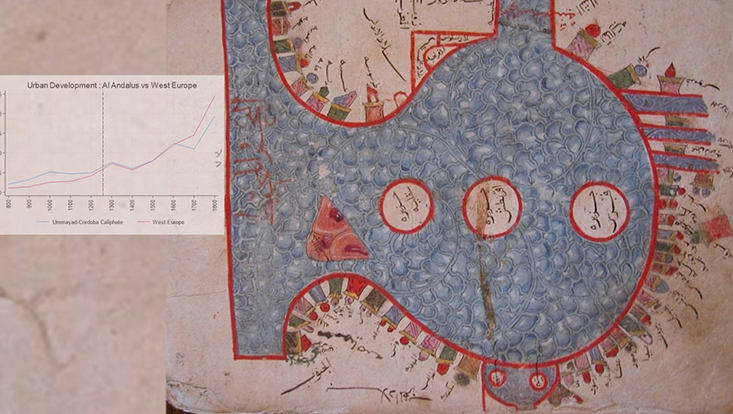Demography, Economy and Law in (Post-)Imperial Worlds, 800 to 1600 CE - Latin Europe and the Western Islamic World in Comparison, Tue., October 17, 2023, 2 pm

Prof. Dr. Stefan Heidemann (Universität Hamburg) and Prof. Dr. Hans-Bernd Schäfer (Bucerius Law School) invite to their workshop "Demography, Economy and Law in (Post-)Imperial Worlds."
The entanglement of law, economy, and demographics is delicate and complicated. Looking at the growth of cities might provide a yardstick for intercultural comparison. Other factors such as political structures, geography, climate, and epidemics influence the growth of economies and populations, too. Thereby, the difference between pull and push factors seems often to be blurred.
Undoubtedly, the 8th and 9th centuries were an extraordinarily prosperous time for the Islamic Empire, after which economy,population, and urbanism started to decline. On the other hand, the Latin Christian world gained momentum at around 1200 with an unprecedented growth until the Early Modern period. Altogether, available sources for a macroeconomic assessment and the demographics of both developments – narrative sources and the archival remains – do not easily lend themselves to comparison. Weber’s idea of autonomous mercantile cities as the cradle of capitalism, reformation, and protestant ethics places deficiencies on the side of the Islamic world, but do not answer why it was so successful to begin with. In that, Weber’s approach was flawed by the Orientalist discourse of the time.
A systematic successful comparative view has not been undertaken yet. Here, the workshop is meant to open up a larger discussion. We so explore the economic foundations, economic and demographic trends, their measurement with proxy indicators, and also the reliability of such assessments. One factor deserves our special attention, that is the role of law in these processes, such as the establishment of Islamic law in the 8th and 9th centuries, and the legal revolution in 13th century Europe.
[ programm ]










